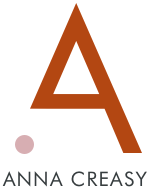Zeit Time Travel
Zeit offers time travel tourism for the first time. This project created an opportunity to explore the future of booking travel online.
Responsive Web Design
My Role: UX / UI Designer
CONTEXT
Write more
TASK
Create a brand and set up an e-commerce responsive website to categorize and showcase their packages.
RESEARCH
Secondary Research and competitive analysis were the starting point in understanding the design challenge and current travel landscape. It is evident that users are increasingly booking their travel online, both on mobile and desktop.
Interviewing a small selection of people further revealed their needs and desires. These included but were not restricted to;
Needs:
At least 50% of travel was motivated by family
Social media, blogs and articles help inspire and discover new places
Direct contact with source; locals at the ground
Itineraries built on recommendations
Looking for an authentic experience; Local insight and cultural sharing
Price & distance are a strong consideration when selecting a destination
Pain Points:
Information overload; too much choice
New destinations can be overwhelming to the hard working user who is looking for reprieve from day to day life
Feeling restricted by a package that is pre-made
Suspicious of the package price and being offered something that you would not have chosen individually
Having to redo the search when adjusting travel dates
Accommodation being misleading and misrepresented on booking site
DEFINE
Visualizing the data gathered a persona, empathy map and storyboard in the day of the life was created. This provided clear direction and a reference point to return to as I moved further through the process.
The research highlighted a number of opportunities which was translated into a prioritized features list, categorized in must have, nice to have and not needed to achieve a viable first version. Once I had my set of features, a site map, task flow and user flow was developed focussed on the purchasing process.
With a list of features and screens, pencil and paper sketches were roughed out before moving into sketch creating wireframes across desktop, tablet and mobile.
DESIGN
Sitting within the travel industry, Zeit offers a groundbreaking service. The desire with the Visual design was to communicate trust, luxury and adventure.
Using the circle, a logo reflecting time and movement was created, inspiring a set branding guidelines.
BRAND
A high fidelity prototype focused on the task of booking a package, was created in inVision. User testing was conducted to identify and record usability successes and problems and overall reaction to the visual design.
On completion an affinity map helped identify the key issues which were then rated according to severity and frequency. Keys findings included;
Success:
All participants believed the information was cleanly and clearly layout
All participants were inspired by the large imagery
Felt like a special trip
Categories allowed you to emerce yourself in the time and place
Pain Points:
65% of participants used the nav bar as they wanted to start at the top of the page. Not knowing where to start the search on the home page.
All participants were confused about the call to action language especially Book. Afraid it would take them straight to confirmation.
All participants found the selection of accommodation type and activities repetitive and confusing as to where they could select it.
All participants wanted flexibility in the booking process to go back and change details on a summary page.
Recommendations Include;
Clarify language on the call to action buttons
Simplify the flow of selecting accommodation and activities
Action at the top of page to start search rather than having to scroll down
Add arrows to the hero images to slide between featured packages
TEST
The user feedback highlighted the importance of testing early and a consideration would be to invest in this earlier on in the process with low fidelity wireframes for quick iterations and stronger usability.
Overall the user feedback reflected the success of creating a brand that was bold, luxurious, and inspiring to book a adventure with the flexibility to make it their own.
The next steps would include diving deeper in the research and expanding the the screens and mapping out the complete site.
Refine, test and reiterate.








